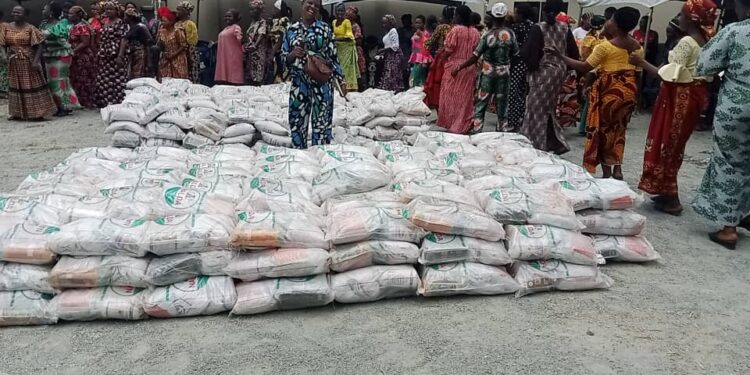A total of 900 farmers have received vital agricultural inputs from the National Agricultural Land Development Authority (NALDA), in Ebonyi and Osun states.
The empowerment is part of a broader effort to ensure the availability of staple foods, and to support Nigerian farmers in enhancing crop yields and overall food production in the country.
The beneficiaries received bags of high-grade fertilizer, herbicides, and improved seed varieties tailored to the agricultural focus of each state.
In Ebonyi, accredited beneficiaries received rice and maize, while those in Osun were given rice and beans for cultivation.
Four hundred (400) farmer received 200 bags of maize and rice respectively for cultivativation across 10 communities within the Ohaozara/Onicha/Ivo Federal Constituency alongside inputs in the event that took place at Ishiagu Community.
While in Osun state, a group of 500 farmers from various local governments received maize and beans seeds in Osogbo, the state capital.
The process also involved documentation of the farmers and their land sizes to ensure precise distribution for optimal results.
Addressing the farmers, the Executive-secretary of NALDA, Prince Paul Ikonne, reaffirmed the agency’s commitment to support farmers to bolster food security in line with President Bola Tinubu’s directive on food security.
Ikonne who was represented by NALDA’s Head of Soil Science Department, Lucius Ndimele, added that the empowerment was strategically aimed at reaching genuine grassroots farmers to increase food production and improve access to staple foods.
“The government is ensuring that you can produce what you eat by providing you with inputs,” Ikonne stated, while emphasising the importance of farming and the goal to reduce food prices in the market.
He said NALDA would continue to distribute these inputs till it get to farmers in every states of the country.
“The government is making sure that you can produce what you’ll eat by providing you inputs and the essence of what we’re doing here today is to ensure Nigerians understand the importance of farming, make sure we produce what we eat and reduce the price of food in the market”, he said.
It is expected that in the next 3 to 4 months, the outputs from the programme, would help in the significant drop in the cost of food items in the market.



